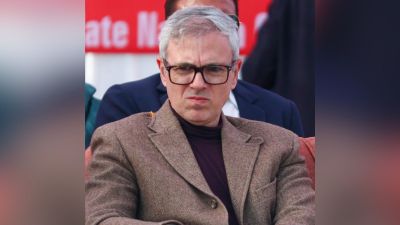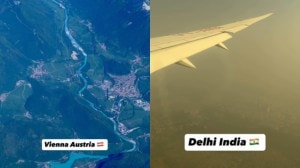Wen visit has had stabilising effect: Delhi
Its reliably learnt that on the issue of a permanent membership of the UN Security Council.
A day after high-level deliberations with Chinese Premier Wen Jiabao,the broad assessment in the government is that his visit had a stabilising effect on the relationship. While India was candid in putting across its concerns,officials found Wen to be receptive and,on many occasions,more forthcoming than expected like the immediate assurance to resolved the stapled visas issue.
Its reliably learnt that on the issue of a permanent membership of the UN Security Council,Wen is believed to have said China will not be an obstacle to India seeking a permanent seat. While these were assurances that did not find their way into a public statement,sources said,they did indicate the significant gap this visit managed to cover.
On the economic front,acceptance of the suggestion to start a strategic economic dialogue to be headed by Deputy Chairman of Planning Commission Montek Singh Ahluwalia on the Indian side was seen as a big plus. After all,the idea was first mooted only last month by Foreign Secretary Nirupama Rao during the official-level strategic dialogue before the visit. The two sides also agreed to annual dialogue between the two Foreign Ministers.
This structure,in a way,mirrors the US-China dialogue framework where the Secretary of State and Treasury Secretary have annual dialogues. That China was willing to step up the engagement level,sources said,showed that there is an overall improvement in perception.
Government sources also explained that the visit ought to be read in the context of the overall India-China relationship,its past and the intractable historical problems that have often thwarted progress. In that respect,New Delhi feels the visit was quite positive with Beijing showing eagerness to resolve some of the issues that have complicated ties in recent months. The comparison of outcomes with other visits like that of the US or French President was being seen as unfair due the complicated nature of this relationship.
While agreeing that India was sending a subtle signal by withdrawing the explicit commitment to One China policy in the joint communique,sources disclosed that India maintained there was no change in its position when this issue was specifically raised by the Chinese side during discussions. In other words,the official view is that in no way was this meant to be an affront as much as it was aimed at underlining mutual and sensitivity to each others core concerns.
Wen was first to raise the issue on his own and said he had instructed his officials to resolve this matter soon. To this,it now emerges that the Indian side referred to how China had come around in 2003 and accepted Sikkim as an integral part of India. So,the point made to the Chinese side was that it has demonstrated the capacity to resolve the issue before it became a permanent problem.
The constructive approach of both sides,sources said,was exemplified by Wens suggestion that both countries should increase the safety zone along the India-China boundary. When the Indian side pointed out that there were existing mechanisms,his suggestion was that there was no harm in having another layer of safeguards and creating a new mechanism.



- 01
- 02
- 03
- 04
- 05




























